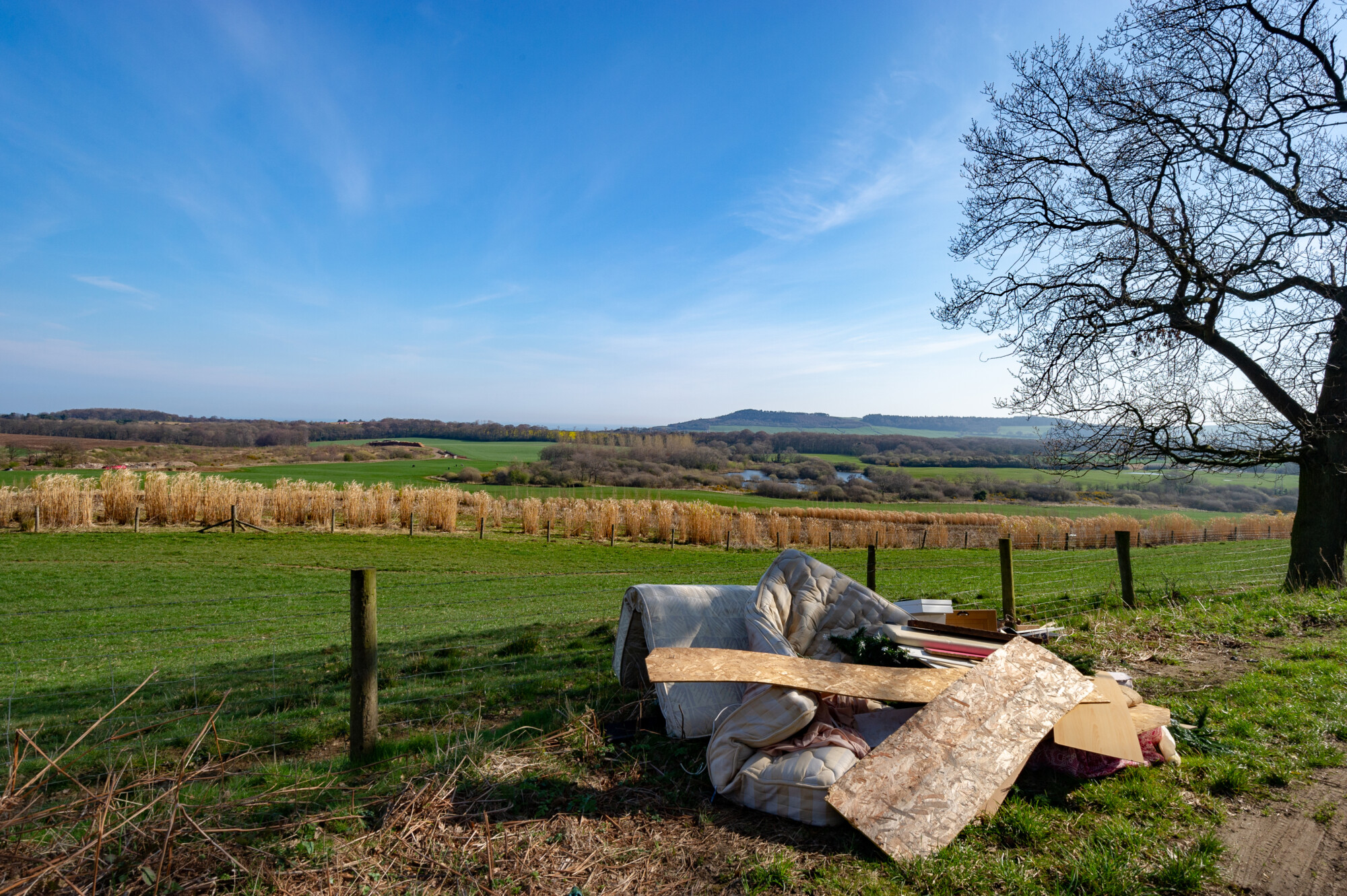Latest Defra figures confirm fly-tipping on the rise
9th December 2021
A new report from Defra shows a distinct rise in the number, and cost, of fly-tipping incidents on public land in the past year. The figures also show a decline in perpetrators being punished, with rural groups responding that the figures only show a small fraction of the actual crime.
Unfortunately, the latest figures show that instances of fly tipping continue to rise, with Defra stating that during the 2020/21 year, local authorities in England dealt with 1.13 million fly-tipping incidents, an increase of 16% from the 980,000 reported in 2019/20. Just for dealing with large fly-tipping incidents, the cost of clearance to local authorities in England in 2020/21 was £11.6 million, compared with £10.9 million in 2019/20.
The statistics are disappointing, but may not be surprising to land owners and farmers who privately deal with fly-tipping on a regular basis. The statistics from Defra only include instances of fly-tipping on public land, with farmers and organisations already responding that the data only covers a fraction of the problem. The cost to private landowners is likely to exceed the £11.6million paid to clear public land. With many land owners feeling unsupported as they are left with the financial burden, and task of clearing the rubbish.
The Country Land and Business Association (CLA) have stated that one of its members is facing a bill of over £100,000 to clear up just one fly-tipping incident.
Mark Tufnell, President of the CLA, responded to the report from Defra: “These figures do not tell the full story of this disgraceful behaviour which blights our beautiful countryside.
“Local authorities tend not to get involved with clearing incidences of fly-tipped waste from private land, leaving the landowner to clean up and foot what is often an extortionate bill. The government figures do not reflect the true scale of the crime because increasing reports of fly-tipping on private rural land are not included […] It’s not just the odd bin bag but large household items, from unwanted sofas to broken washing machines, building materials and even asbestos being dumped across our countryside.
“Although the maximum fine for anyone caught fly-tipping is £50,000 or 12 months’ imprisonment, if convicted in a Magistrates’ Court, this is rarely enforced. Unless tougher or more realistic action is taken to combat this kind of rural crime, it will continue to wreak devastation across rural communities.”
To add to farmers’ frustration the report from Defra also suggests that less people are being penalised for fly-tipping, despite the rise in incidents. It states:
- Local authorities carried out 456,000 enforcement actions in 2020/21, a decrease of 18,000 actions (4%) from 474,000 in 2019/20.
- The number of fixed penalty notices issued was 57,600 in 2020/21, a decrease of 24% from 75,400 in 2019/20. This is the second most common action after investigations and accounted for 13% of all actions in 2020/21.
- The number of court fines issued decreased by 51% from 2,672 to 1,313 in 2020/21, with the value of total fines decreasing to £440,000 (a decrease of 62% on the £1,170,000 total value of fines in 2019/20).
It is thought that instances of the crime have increased over the past couple of years partly due to the effect lockdowns have had on legal dumps opening. Though many instances are also linked to organised criminal activity.
Responding to the figures, Sarah Lee, Director of Policy and Campaigns at the Countryside Alliance said: “These figures confirm the shocking scale of the problem before us. From quiet rural lanes and farmers’ fields to bustling town centres and residential areas, fly-tipping continues to cause misery across the country. It is incredibly concerning to see that despite a substantial increase in fly-tipping incidents, enforcement action is down. Fly-tippers, be they acting alone or as part of an organised criminal gang, need to know that their selfish actions will result in robust punishment.”
NFU Deputy President Stuart Roberts said: “These figures are incredibly disappointing, particularly when the number of local authority enforcement actions, fixed penalty notices and fines handed out by the courts to offenders are all down. It also confirms what we heard from our members during the first lockdown that fly-tipping incidents spiraled out of control, particularly when waste and recycling centres closed.
“Fly-tipping continues to plague the lives of many of us living and working in the countryside. It’s not just the odd bin bag but old kitchen appliances, sofas and industrial-scale amounts of rubbish, such as builder’s rubble and hazardous materials. This affects farmers working hard to produce food and care for the environment, but it also takes a huge toll emotionally and financially and impacts on mental health.
“Significant progress needs to be made to stop it from happening. Let’s start by properly punishing those offenders who are caught dumping waste illegally with punitive fines, so they act as a deterrent.”

